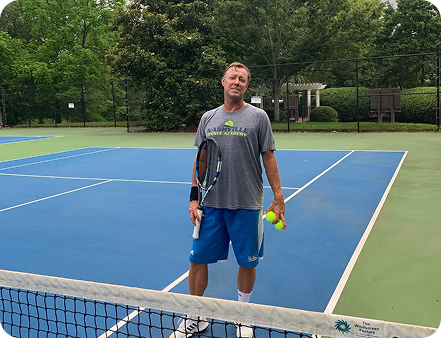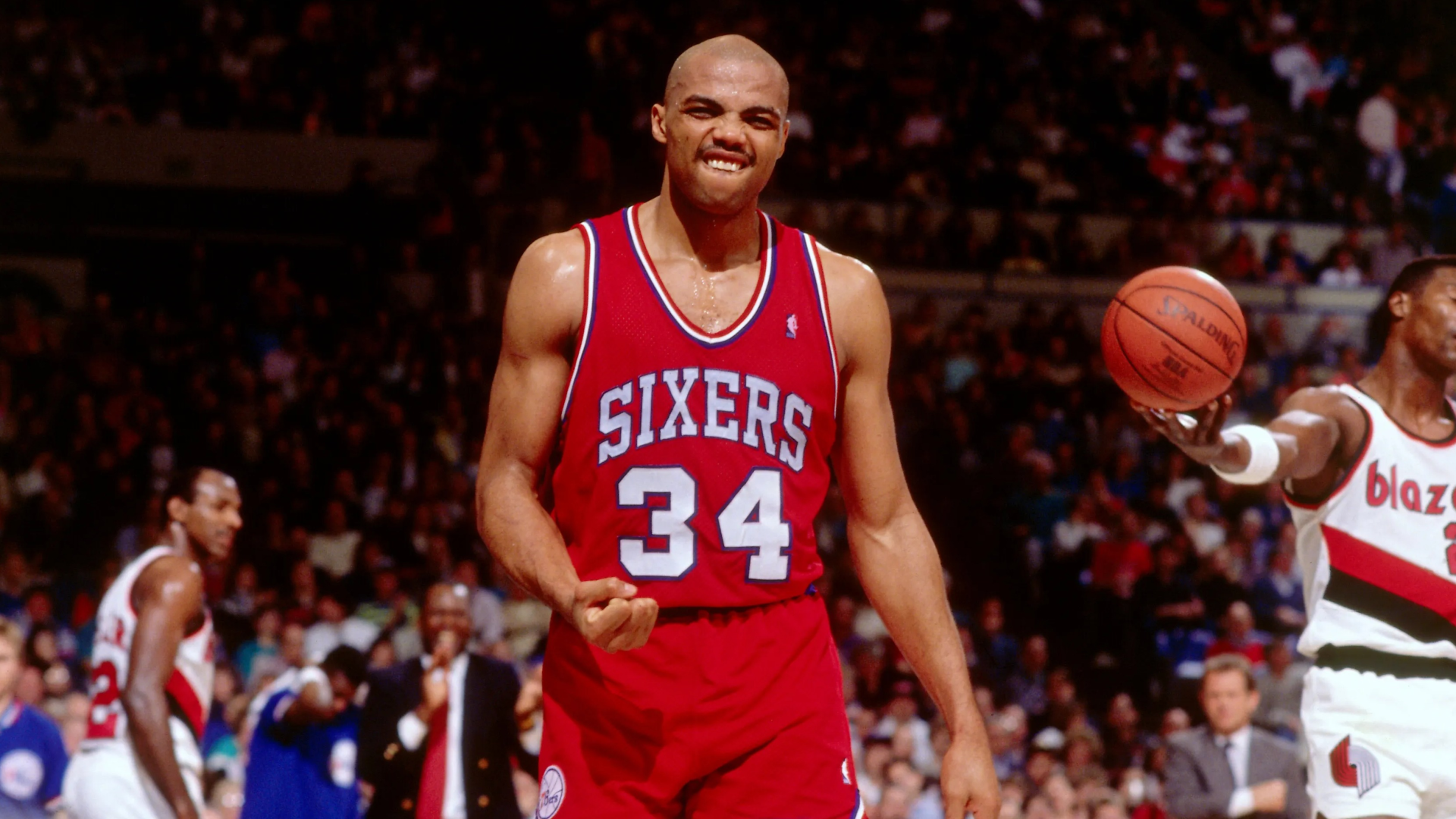
Role Model
A role model is someone who inspires, influences, and sets a positive example for others through their actions, character, and achievements. Whether in sports, leadership, parenting, or personal relationships, role models shape attitudes, behaviors, and aspirations in those who look up to them.
They can be anybody, someone who has achieved great things, or someone who is just good at living their life in a way that you aspire to. Role models provide a template for success and can help people set and achieve ambitious goals, often modelling the type of behavior required to reach their goal,
Definition: What is a Role Model?
Look who else thinks this is important
Role Model in Society
The year was 1993. The moment, a thirty-second Nike commercial directed by Spike Lee, featuring NBA superstar Charles Barkley. Barkley was the reigning league MVP, dominating not just on the court but also the evening news, thanks to a string of embarrassing off-court incidents. A little humility and a promise to do better might have quieted his critics. But not the Chuckster. Instead, he double-dribbled down.
How to Find A Role Model
A role model is someone you admire and look up to. They can be anybody: a celebrity, a friend, a family member, or even someone you don’t know. What is advantageous about having role models (you can have as many as you like) is that they can provide much-needed motivation, inspiration, and support on the long, often stressful journey that is competitive tennis.
When choosing a role model, it’s essential to find someone who shares your values and beliefs. This way, you can be sure that you’re modeling yourself to someone aligned with the same principles you embody. It’s also essential, though not mandatory, to choose a role model successful in the field you want to be successful in, and for our purposes, that field is competitive tennis.
Once you’ve found your role model, there are several ways to stay current with them. You can follow them on social media, watch and study their matches religiously, learn as much as you can about them through articles and interviews, or even reach out to them directly and let them know how much you look up to them.
The most important thing is to take what you admire most about your role model and use that as inspiration for your own life.




Here are 5 FBTL Bullet Points to help you find a Role Model
1. Identify What You Truly Value
Know thyself. Reflect on the traits that inspire you most: Class, Composure, Resiliency, Humility, Passion, Sportsmanship... all the qualities of the most successful among us. Your choices in role models should represent values that align with your best self, not just on the court as a competitor but throughout all of life.
2. Look Beyond Rankings
Don’t just lionize the most successful players. What they do is fantastic, but for us mortals, likely out of reach. Seek those who display the emotional traits you connect with most, a goal we all can achieve.
Players like the Bryan Brothers for camaraderie and commitment, Venus Williams for still loving the battle no matter her age, or Gael Monfils, whose joy and creativity never fail to entertain.
Tennis overfloweth with magnetic, colorful stars. Choose role models whose journeys, not just their results, resonate with your own path.
3. Learn Their Emotional Habits
Study how your role models regulate their emotions, how they reset after mistakes, how they handle match pressure, or how they express gratitude for being able to compete at our great game, no matter the results.
Watch press conferences, listen to interviews, or read as much as you can about them to better understand their internal world, not just their match results
4. Surround Yourself with Local Role Models
Inspiration doesn’t have to come from the pros; sometimes, our earliest role models can be a coach, a practice partner, or a parent.
Seek out emotionally grounded people who lift others, stay composed no matter how dire their predicament, and lead by example.
Emulate those who make others better just by how they carry themselves.
5. Revisit and Refine Over Time
As you evolve, your role models should too.
Who inspired you at 13 may not be who you need at 23 or 33. Reassess your influences as your goals, maturity, and self-awareness deepen.
Keep a short list of Emotional Intelligence mentors. All the answers to tennis’ challenges lie within them. Use their examples to guide you through your playing career.
Action Steps to becoming a good role model
We’ve explored what a role model is, why they’re important, what they do, and how you can find one. Now it’s time to learn the things you can do to become the best role model yourself. Being a great role model has so many components. Obviously, how you present yourself and conduct yourself are all important
Our focus here at FBTL will be from an EQ perspective as a competitive tennis player.
FIVE THINGS TO DO
1. Mentor Younger Players
Volunteer at clinics or club events to rally with, coach, or talk to younger, more inexperienced players about the emotional side of tennis — how to handle losses, nerves, and sportsmanship.
Sharing experience normalizes vulnerability in a relatable way, such an essential trait to model.
2. Demonstrate Emotional Composure in Competition
Model calm and grace, especially during challenging moments — bad calls, bad breaks, or momentum shifts.
Let others see your emotional intelligence in action: how you cope, how you self-regulate, and how you reset between points during tight matches.
It inspires peers and sets a behavioral standard within your tennis community.
3. Build Positive Club Culture
Take initiative in creating inclusive hitting groups, organizing social doubles, or welcoming new members.
Demonstrate gratitude toward staff, organizers, and opponents — a simple “thank you” after matches or events goes a long way.
Promote a tone of respect and belonging wherever you play.
4. Lead by Example Off the Court
Participate in club or UTR events that emphasize education, wellness, and emotional growth — not just competition.
Use social media or newsletters to share your tennis insights, routines for enhanced emotional intelligence, or lessons learned from your tennis life.
Inspire others to value balance, mindfulness, and quality of experience over results.
5. Engage in Service Beyond Tennis
Support or organize fundraisers and charity tournaments for causes like youth access, emotional health, or continued education.
Represent tennis as a vehicle for community connection and emotional wellness.
Show that the lessons learned through tennis competition extend to how you live, give, and serve others.
Benefits of having a role model
Role models provide us with a positive perspective on life. They help us see the best in people and the potential for improvement in ourselves. This can be especially useful when we’re going through tough times or feeling down about our prospects.
Having a role model can also give us a sense of purpose. When you see someone who is living their best life chasing their dreams, it inspires us to do the same. Seeing someone who is fulfilled reminds us that if it’s attainable for them, it’s attainable for us too.
Lastly, role models can help improve our social skills. When interacting with someone who is confident and outgoing, it rubs off on us, resulting in you modeling their confident qualities yourself, helping you in not just your tennis life but your off-court adventures too.
Benefits of Being (and Having) a Role Model
Role models shape emotional intelligence by giving form to abstract virtues like discipline, gratitude, and resilience. Having one motivates you through tough stretches; being one deepens your sense of purpose. In tennis, role models remind us that the game’s real reward lies in who we become through the tennis life as we grow as people.
Inspire belief—seeing someone achieve what you aspire to makes it feel possible for you too.
Develop purpose—your journey gains meaning when guided by clear examples of excellence.
Strengthen social and emotional awareness—learn from how others carry themselves under pressure.
Build a positive feedback loop—good habits inspire respect and reinforce belief in yourself
Create legacy—your character becomes the standard others look up to and carry forward. Remember, we are all ambassadors of the game. Wear that title with pride
Being a role model is rewarding but demanding. It means living with transparency, humility, and emotional balance—especially in the public eye. The goal isn’t to be flawless but to stay real, grounded, and accountable, even when things get messy.
CHALLENGES OF BEING A ROLE MODEL
1. Emotional Transparency Under Pressure
Tennis players wear their emotions on their sleeves — frustration, joy, disappointment, pride — often in front of others, whether on TV or not. It can be very humbling.
Role models must learn to regulate emotions skillfully without suppressing them.
EQ Challenge: balancing authenticity (showing emotion) with composure (setting an example).
2. Managing External Expectations
Parents, peers, and younger players expect perfection.
Role models must handle scrutiny, criticism, and unrealistic standards with grace.
EQ Challenge: maintaining self-worth and perspective when external validation fluctuates.
3. Leading by Example — Even When Struggling
Players are expected to model resilience, fairness, and discipline, even in personal or professional slumps.
EQ Challenge: showing vulnerability without losing authority — demonstrating that growth and setbacks coexist.
5. Sustaining Inner Balance Amid Success
Success can distort priorities — ego, entitlement, burnout can creep in.
EQ Challenge: maintaining centeredness, gratitude, and humility while navigating the discomfort that comes with strong results.
4. Empathy and Influence
A role model’s words and actions can deeply influence juniors, fans, and peers.
EQ Challenge: developing empathy and emotional awareness to use influence positively — not reactively.
Role Models in Tennis
Few activities are more target-rich for finding role models than our sport of tennis. Tennis, with its global reach and generations of icons, offers the aspiring player an embarrassment of riches. Every star player’s persona is an extension of those who came before them, tennis’ version of natural selection, each era adopting the effective traits of the era before, all while adding their own personal flair. Whether it’s the style, fashion, technique, or grace of today’s professionals, or closer to home, with who first placed a racquet in your hand or the mentor at your local club who gave of his time to help you learn, role models are everywhere in tennis, the living curriculum of our sport.
The Power of Daily Routines
A role model isn't defined by their accomplishments, but by their consistency of manner. To be a role model, one can’t exhibit good sportsmanship occasionally; it must be constant and expected. What separates the steady from the scattered, the measured from the reactive, in tennis and life, is often as simple as a well-crafted daily routine.
The way you start your mornings, whether it be centering yourself, creating intent for the day, or strengthening your conscious contact with a power greater than yourself, prepares you for the rigors of training and competition, forming the quiet architecture of your emotional intelligence. Through these routines, you signal to yourself and those observing you that daily work on my emotional discipline is just as important as my training discipline and is non-negotiable.
The Emotion Racket
Becoming a Role Model Through Emotional Awareness
(Using the Tools of the FBTL Emotion Racket)
In my memoir You Can Get There From Here, I wrote about a young player who had all kinds of talent but lacked the tools to manage his emotions. That imbalance — between my ball striking and my mood management nearly cost me everything.
The FBTL Emotion Racket was created to ensure that others never have to walk that same path unarmed. It's more than a tool for competition; it’s a guide for emotional identification and management to help you navigate the many powerful emotions that come with tennis life. It's the players who manage these challenging emotions best who become the kind of role models others want to follow.
Pep Talk Series
Using the FBTL Pep Talk Series for Breakthrough Emotions
These are the situations that can set us back
No matter how much we prepare to manage all possible situations that can come our way, every competitor will have breakthrough emotions, moments when frustration, fear, or doubt threaten to derail progress. The FBTL Pep Talk Series exists for those moments. Inspired by my own story in You Can Get There From Here, these tools help players move from potential breakdowns to breakthroughs, keeping us on our journey in the hopes of seeing our talents through.
When I was competing, I didn’t have a guide for what to do when my emotions hijacked my experience. I learned the hard way that my performance was a reflection of my internal emotional state. What the FBTL Pep Talk Series gives today’s players is something I never had: a structured emotional response system. Whether you’re reeling from a loss, struggling with confidence, or facing burnout, these short, scenario-based prompts help you pause, reset, and reframe your mindset to keep you on the path.
Emotional intelligence resides in the space between a trigger and your response. That space, if you can manage it, is where growth happens. Using these tools regularly develops all the traits we associate with strong role models, such as composure, empathy, resilience, and the like, not just for competition but in our lives beyond tennis. Every time you choose to respond with awareness rather than react with impulsiveness, you’re modeling the kind of character other players need to see.
We’re not robots. You’re going to feel things, and you want to feel things. But we seek mastery of how we respond to our emotions in order to be the best role models we can be.
5 FBTL Pep Talk Power Tools for Breakthrough Emotions
Pause and Breathe: Create separation between feeling and reaction; take three deep breaths before responding.
Reframe the Moment: Shift from Why is this happening to me? to taking your power back with How do I best navigate this?
Use Your Emotional Vocabulary: Name the emotion (“I’m anxious,” “I’m frustrated”) — naming emotions is the catalyst to reclaiming your power over them.
Activate a Reset Ritual: A simple cue — towel off, adjust strings, exhale deeply — to signal emotional reset mid-match.
Reaffirm Your Identity: Remind yourself who you are beyond the score. You’re not just a competitor; you’re a builder of character and example for others.
Player's Box
Using the FBTL Player’s Box:
Becoming a Role Model Through Family and Team Communication
Though an individual sport by nature, no player ever goes it alone. Behind every competitor sits a network of people: parents, coaches, teammates, friends, and partners. This is what the FBTL Player’s Box represents — the emotional infrastructure of a player’s journey. It’s where empathy, communication, respect, and emotional awareness are needed most.
In my memoir You Can Get There From Here, I shared how isolation, misunderstanding, and emotional disconnection derailed my dreams of becoming a professional tennis player. The Player’s Box was designed to help players and their support systems to better navigate the oft-stressful journey that is tennis. The Player’s Box teaches players to communicate honestly, listen actively, and bring their most authentic emotional selves to every interaction, being a role model to all those privy to their inter-team interactions.
The foundation of the Player’s Box rests on emotional literacy. When players learn to express what they feel —disappointment, anxiety, frustration, or doubt —they give others the opportunity to support them meaningfully. Likewise, learning to listen without judgment builds trust, strengthens bonds, and creates a healthier tennis environment. Whether speaking with a parent after a loss or a doubles partner during a match, the emotionally intelligent player can help transform such uncomfortable tensions into stronger team cohesion.
Ultimately, being a role model isn’t about perfection; it’s about being real. It’s about showing up emotionally mature, grounded, and self-aware, both on and off the court. The Player’s Box teaches the important role every relationship plays in your development. The more skillfully you manage those connections, the more fulfilling your overall experience will become.
5 Ways to Use the FBTL Player’s Box to Become a Role Model
Practice Reflective Communication – Use post-match reflections to share emotions, not excuses. Tell your team or family what you felt and learned before what went wrong.
Set Emotional Boundaries – Before matches, clearly define when you need quiet support versus verbal encouragement. This teaches others how to help you best.
Model Grace Under Pressure – Demonstrate composure during adversity; your reaction teaches those around you how to handle stress.
Encourage Two-Way Feedback – Ask your coach, parent, or partner how you can improve communication. Then, listen with humility — that’s real emotional intelligence.
Celebrate the Team Behind the Player – Always give props to your support system. Gratitude reinforces connection and inspires others to emulate your example.
Player's Box
Using the FBTL Player’s Box:
Becoming a Role Model Through Family and Team Communication
Though an individual sport by nature, no player ever goes it alone. Behind every competitor sits a network of people: parents, coaches, teammates, friends, and partners. This is what the FBTL Player’s Box represents — the emotional infrastructure of a player’s journey. It’s where empathy, communication, respect, and emotional awareness are needed most.
In my memoir You Can Get There From Here, I shared how isolation, misunderstanding, and emotional disconnection derailed my dreams of becoming a professional tennis player. The Player’s Box was designed to help players and their support systems to better navigate the oft-stressful journey that is tennis. The Player’s Box teaches players to communicate honestly, listen actively, and bring their most authentic emotional selves to every interaction, being a role model to all those privy to their inter-team interactions.
The foundation of the Player’s Box rests on emotional literacy. When players learn to express what they feel —disappointment, anxiety, frustration, or doubt —they give others the opportunity to support them meaningfully. Likewise, learning to listen without judgment builds trust, strengthens bonds, and creates a healthier tennis environment. Whether speaking with a parent after a loss or a doubles partner during a match, the emotionally intelligent player can help transform such uncomfortable tensions into stronger team cohesion.
Ultimately, being a role model isn’t about perfection; it’s about being real. It’s about showing up emotionally mature, grounded, and self-aware, both on and off the court. The Player’s Box teaches the important role every relationship plays in your development. The more skillfully you manage those connections, the more fulfilling your overall experience will become.
5 Ways to Use the FBTL Player’s Box to Become a Role Model
Practice Reflective Communication – Use post-match reflections to share emotions, not excuses. Tell your team or family what you felt and learned before what went wrong.
Set Emotional Boundaries – Before matches, clearly define when you need quiet support versus verbal encouragement. This teaches others how to help you best.
Model Grace Under Pressure – Demonstrate composure during adversity; your reaction teaches those around you how to handle stress.
Encourage Two-Way Feedback – Ask your coach, parent, or partner how you can improve communication. Then, listen with humility — that’s real emotional intelligence.
Celebrate the Team Behind the Player – Always give props to your support system. Gratitude reinforces connection and inspires others to emulate your example.
Character Section
Becoming a Role Model: The FBTL Character Path
The path to being a great role model for tennis is measured in the quiet, consistent acts of character that shape you both on and off the court. My journey through adversity to recovery is a daily reminder that peace of mind begins when we learn to respond to life, not react to it. FBTL’s Character Development section takes those lessons and transforms them into actionable tools for competitors striving to become the best version of themselves—steady, humble, resilient, and inspiring to others, no matter how they fare between the lines.
At its core, character is what supports us when the circumstances turn against us, and if you’re pursuing the tennis life, they most certainly will. Every act of composure, honesty, and self-discipline is a reflection of emotional intelligence in action. FBTL teaches that emotional maturity doesn’t necessarily come naturally; it takes practice. The more you apply these principles, the more they become second nature, guiding you not just through matches but through the deeper challenges of the tennis journey and life beyond it.
To become a role model, you must live with intention. Every encounter, every post-match interaction, every way you treat your opponents, teammates, and most importantly yourself, becomes part of your story. The next generation is always watching; they seek role models just like we do. Let them learn from you, not just from how you play the game, but from how you handle yourself.
Using the Tools of FBTL Character Development
Reflect Daily: Use FBTL’s reflection prompts to evaluate how you handle challenges each day—moments of frustration, success, or pressure. Growth begins with awareness.
Live Your Values: Define your personal code—honesty, humility, effort, respect—and align your behavior with it in every match, practice, and relationship.
Model Composure: When things go wrong, stay steady. Others take cues from your calmness under pressure. Your emotional control becomes your credibility.
Embrace Accountability: Use FBTL’s journaling and EQ check-ins to take responsibility without judgment. The goal isn’t perfection, it’s ownership and progress.
Give Back: Mentor younger players, thank your coaches, and appreciate your opponents. Gratitude and generosity are the marks of someone who’s transformed themselves into the role models we were so inspired by ourselves.
My Personal Experience
Growing up, as with most young athletic boys, my first role model was Father. He was the funniest, could do everything, was the best at everything and he knew everything. Big shoes to fill, but wanting to model myself just like him became my first life quest. Yet my Dad was complicated. He had a dark side, moody, angry, tempermental, all performed with a warm Guiness Stout in one hand and a Salem Menthol in the other. Not exactly the behavior an impressionable youth should model.
What the Experts Say
Don't believe me. Read about what the experts say.
A study of adolescent athletes found that modeling via role-models significantly increased self-efficacy and flow state. In other words: observing credible role models helped young athletes.
Lee, S., Kwon, S., & Ahn, J. (2021). The Effect of Modeling on Self-Efficacy and Flow State of Adolescent Athletes Through Role Models. Frontiers in Psychology, 12, 661557. https://doi.org/10.3389/fpsyg.2021.661557Research into sports role models shows that when athletes are seen as role-models, their behaviour influences not just performance, but self-concept and identity formation among their peers and followers. https://efsupit.ro/images/stories/october2023/Art296.pdf?utm_source=
Literature on youth sport emphasises that role modelling by parents, coaches and older players must be positive and intentional if the athlete is to develop healthy psychological and emotional skill sets. Poor modelling (e.g., undue pressure, negative behaviour) can undermine emotional health. Merkel, D. L. (2013). Youth sport: Positive and negative impact on young athletes. Open Access Journal of Sports Medicine, 4, 151. https://doi.org/10.2147/OAJSM.S33556
Studies of elite athlete influence suggest that the motivation, participation and internalisation of sport values among younger players are higher when they identify with role models whose values align with theirs. Kelly, E., Liston, K., Dowd, K., & Lane, A. (2024). 239 The Influence of role models on participation in sport and physical activity among young males and females in Ireland. European Journal of Public Health, 34(Supplement_2). https://doi.org/10.1093/eurpub/ckae114.028
Implications for Competitive Tennis Players (From an EQ Perspective)
Being a role model enhances your emotional intelligence because you must become aware of your behaviors and their impact upon others.
Being a Role Model reinforces self-awareness and self-regulation, two core EQ components. If you know others may observe you, that influences your choices on court and off.
Being a Role Model heightens social awareness: recognizing that your coach-player, parent-child, teammate-opponent dynamics matter; you’re modelling emotional composure in all your affairs.
Being a Role Model supports motivation and perseverance: when younger players or peers look up to you, it strengthens your intrinsic motivation, aiding in sustaining high EQ and long-term success.
Being a Role Model builds character and long-term reputation: Emotional intelligence dictates how we respond to adversity. Being a role model must align with the high-standards of character, emotional maturity, and legacy you set for yourself.
Q and A session











